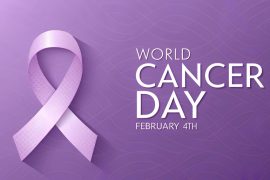Have you ever noticed small changes in your body and thought they might mean something important? Sometimes, these small signs need attention. Colorectal cancer is one condition that can appear quietly, but if you know the warning signs, you can catch it early. Recognising the early signs of colorectal cancer can save your life. In this blog, we break it down simply for you. Here is what you should look out for.
What is Colorectal Cancer? [1]
Colorectal cancer starts in the colon or rectum, which are parts of the digestive system that help process food and remove waste. Like other cancers, it happens when abnormal cells grow too quickly, forming a tumour. It might be called colon cancer or rectal cancer depending on where it begins.
Importance of Recognising Early Signs and Symptoms [2]
Colorectal cancer usually takes years to develop. It often starts as a non-cancerous polyp (a small growth) inside the colon or rectum. Over time, these polyps can turn into cancer. By noticing early symptoms, people can get medical help sooner, which might stop the disease from getting worse. Catching it early not only improves the chances of survival but also makes treatment easier and less complicated.
Common Symptoms and Early Signs of Colorectal Cancer
The symptoms of colorectal cancer can be different for everyone, but there are some common signs to look out for. If any of these signs last for more than a few days, it is important to seek medical advice.
Changes in Bowel Habits [3]
A common early sign of colorectal cancer is a noticeable change in bowel habits. This could mean frequent constipation, diarrhea, or switching between the two. Some people may notice sudden, unexplained changes in how often they use the bathroom or see that their stool looks different. It is important to pay attention to these changes and talk to a doctor if they last for a while.
Rectal Bleeding or Blood in Stool [2]
Seeing blood in your stool or having rectal bleeding can be scary, and while there are many non-cancerous reasons for it, it can also be a sign of colorectal cancer. The blood might be bright red or make the stool look dark or like tar. If you notice any blood in your stool, even if it happens just once, it is important to get it checked right away.
Persistent Abdominal Discomfort [4]
Constant cramping, gas, bloating, or stomach pain that does not go away could be another early sign of colorectal cancer. Some people describe it as a general discomfort in the belly that lasts for weeks. If you have ongoing stomach discomfort that is not linked to your diet or other common reasons, it is a good idea to consult a healthcare professional.
Unexplained Weight Loss [5]
Sudden, unexplained weight loss may happen because of the body’s response to a growing tumour. If you are losing weight unexpectedly without trying, it is important to look into it and rule out any serious health issues.
Fatigue and Weakness [6]
Feeling unusually tired or weak, even after plenty of rest, can sometimes be a sign of colorectal cancer. This kind of fatigue is often due to internal bleeding, which can lead to anemia (a condition where the body does not have enough red blood cells to carry oxygen).
Narrow or Ribbon-Like Stools [7]
If your stool looks narrower or like a ribbon, it could mean there is a blockage in the colon, possibly from a tumour. While this can also happen due to other digestive problems, it is important not to ignore it, especially if it continues.
Feeling of Incomplete Bowel Movement [8]
Some people with colorectal cancer may feel like they have not completely emptied their bowels after going to the bathroom. This constant feeling of needing to go again, even after a bowel movement, could be a sign of something blocking the colon, like a tumour.
Conclusion
Your body has a way of telling you when something is not right, and it is important to listen to those signals. If you have noticed any of the signs we have highlighted, do not wait to get it checked out. A small step today could make a huge difference tomorrow. Early detection is key, and being aware of these symptoms can help you take control of your health.
Reference Links:
[1] https://www.cancer.org/cancer/types/colon-rectal-cancer/about/what-is-colorectal-cancer.html
[2] https://my.clevelandclinic.org/health/diseases/14501-colorectal-colon-cancer
[3] https://www.mayoclinic.org/diseases-conditions/colon-cancer/symptoms-causes/syc-20353669
[4] https://www.hopkinsmedicine.org/health/conditions-and-diseases/colon-cancer/colon-cancer-symptoms
[5] https://www.medicalnewstoday.com/articles/150496
[6] https://www.cancer.org/cancer/types/colon-rectal-cancer/detection-diagnosis-staging/signs-and-symptoms.html
[7] https://www.mayoclinic.org/narrow-stools/expert-answers/faq-20057781
[8] https://www.medicalnewstoday.com/articles/318583





Comments are closed.